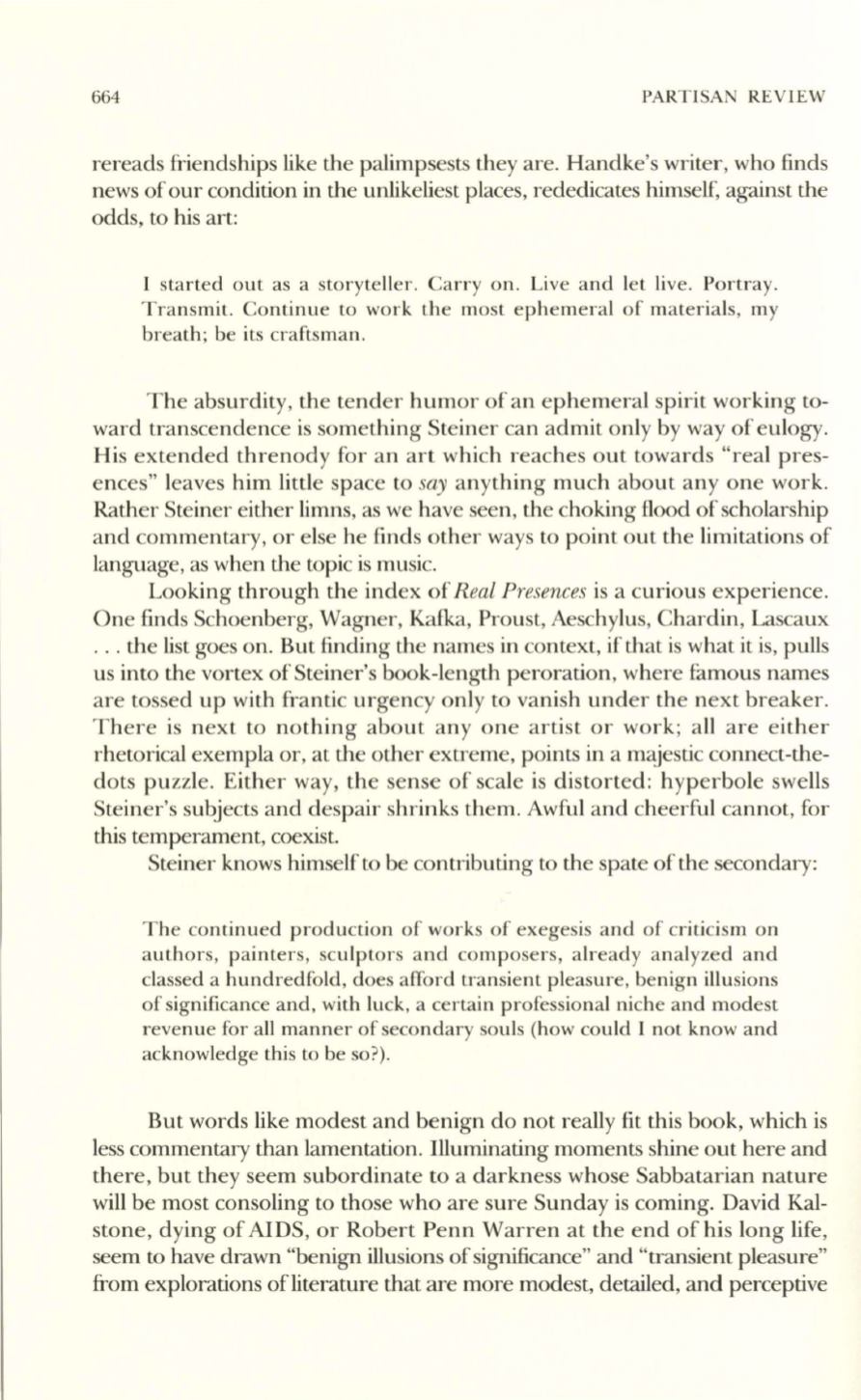
664
PARTISA REVIEW
rereads friendships like the palimpsests they are. Handke's writer, who finds
news ofour condition in the unlikeliest places, rededicates himself, against the
odds, to his art:
I started out as a storyteller. Carryon. Live and let live. Portray.
Transmit. Continue to work the most ephemeral of materials, my
breath; be its craftsman.
The absurdity, the tender humor of an ephemeral spirit working to–
ward transcendence is something Steiner can admit only by way of eulogy.
His extended threnody for an art which reaches out towards "real pres–
ences" leaves him little space to
say
anything much about anyone work.
Rather Steiner either limns, as we have seen, the choking flood of scholarship
and commentary, or else he finds other ways to point out the limitations of
language, as when the topic is music.
Looking through the index of
Real Presences
is a curious experience.
One finds Schoenberg, Wagner, Kafka, Proust, Aeschylus, Chardin, Lascaux
... the list goes on. But finding the names in context, if that is what it is, pulls
us into the vortex of Steiner's book-length peroration, where famous names
are tossed up with frantic urgency only to vanish under the next breaker.
There is next to nothing about anyone artist or work; all are either
rhetorical exempla or, at the other extreme, points in a majestic connect-the–
dots puzzle. Either way, the ense of cale is distorted: hyperbole swells
Steiner's subjects and despair shrinks them. Awful and cheerful cannot, for
this temperament, coexist.
Steiner knows himself to be contributing to the spate of the secondary:
The continued production of works of exegesis and of criticism on
authors, painters, sculptors and composers, already analyzed and
classed a hundredfold, does afford transient pleasure, benign illusions
of significance and , with luck, a certain pr-ofessional niche and modest
revenue for all manner of secondary souls (how could I not know and
acknowledge this to be so?).
But words like modest and benign do not really fit this book, which is
less commentary than lamentation. Illuminating moments shine out here and
there, but they seem subordinate to a darkness whose Sabbatarian nature
will be most consoling to those who are sure Sunday is coming. David Kal–
stone, dying of AIDS, or Robert Penn Warren at the end of his long life,
seem to have drawn "benign illusions of significance" and "transient pleasure"
from explorations of literature that are more modest, detailed, and perceptive


